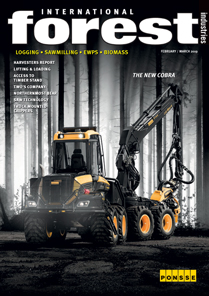EDITOR’S COMMENT ISSUE 70 AUG/SEPT 2019
US-China trade still functioning
Current tensions are indicative of wider challenges for international business
There has been much made of the trade war between the US and China. In these pages alone I have devoted a disproportionate amount of time to analysing the potential fall out from economic policies on both sides of the argument.
But I have been wondering more recently whether the focus on this tit-for-tat confrontation is really to blame for as much of the economic stagnation as commentators – including myself – have assumed.
For a start, the US economy had been trending lower for a period ahead of President Donald Trump’s insertion in 2017. Meanwhile, the 3% growth rate that was touched on briefly was never sustainable, having been built on unsustainable monetary expansion and debtfunded tax cuts.
China was tracking a similar-if-not-more dramatic path. Having hit a peak GDP growth rate of 15.4% since the turn of the millennium, expansion has dropped to just 6.2%, currently. This is still strong growth on a big underlying number but it also represents a sharp pull back in the demand profile on which the rest of the world has come to depend.
It’s also worth noting that those who hope the potential removal of Trump in 18 months may herald a change in tack are likely to be disappointed. A theoretical replacement is likely to have to match Trump’s largely popular hard line on China if they are to successfully ascent to the White House.
As much as Trump is using China as a scapegoat for more deep-seated economic challenges for the US, business leaders the world over may be guilty of blaming the trade war for problems that were already obvious.
The fallout between the UK and the rest of Europe is hurting the economies of around 30 nations, including half of the G8 group of nations. The politics in Russia, Turkey and Brazil have been undermining economic expansion for a while, too. Korea and Japan are at loggerheads, while India’s growth plans rely on securing a greater share of manufactured trade, which feels difficult in an increasingly nationalistic global economy.
News out recently, however, showed that, perhaps, it has been too easy to cite economic hurdles and lobby government to change policy to make life easier for business. Perhaps business leaders should be putting those energies into entrepreneurial growth efforts in building partnerships independently of trade deals.
Sure, this is easier said than done – for some industries trading with certain partners is plainly illegal – but in many cases it is eminently possible. One snippet of news caught my eye recently by way of example.
Major Chinese equipment group Guangxi LiuGong Machinery has signed an MOU with US group, Valvoline. The pair will form a strategic global alliance for lubricants, under which Valvoline will become the preferred provider of lubricants for markets outside of China.
The attitudes of both company heads demonstrated a single-mindedness toward progress.
Zeng Guang’an, Chairman of Guangxi Liugong Group and Guangxi Liugong Machinery: “Today’s announcement with industry leader Valvoline is another step in our mission to provide complete solutions to our customers,” said Zeng.
Craig Moughler, Valvoline Senior Vice President of Product Supply and OEM: “We’ve established a strong relationship with LiuGong in many markets. We are looking forward to expanding this relationship and delivering solutions to LiuGong and their customers as they further expand their business globally.”
The forestry sector has at its heart a more entrepreneurial spirit than most. I, for one, would like to see us thrive if others continue to play the blame game.
Enjoy
Chris Cann







